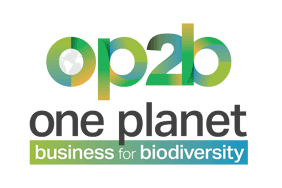With other companies, Symrise wants to protect biodiversity. That’s why the companies have created the One Planet Business for Biodiversity (OP2B) coalition, which focuses on agriculture. Symrise is one of the founding members. The partners have committed themselves to jointly developing more environmentally friendly agricultural methods and changing their added value accordingly. On September 23, 2019, the launch of the initiative, which involves 18 companies and the World Business Council for Sustainable Development (WBCSD), was officially announced at the UN Climate Change Conference in New York.
Globalized and specialized agriculture is currently reaching its ecological and social limits. The global food and agriculture system is responsible for 30 percent of man-made carbon dioxide emissions, 70 percent of drinking water consumption and 60 percent of global biodiversity loss. At the same time, biological diversity is an essential requirement for fertile soils, flower pollination and pest control. This is why the cross-industry coalition OP2B has set itself the goal of developing alternative agricultural methods that protect and promote biodiversity.
In their work together, the 18 member groups focus mainly on three areas. First, they want to develop regenerative agricultural methods to protect the soil. These are intended, for example, to help plants store carbon dioxide better in the earth and enable soils to absorb more water. In addition, the resistance of vegetation is to be improved and dependence on artificial fertilizers and pesticides significantly reduced. Second, the partners want food manufacturers to diversify their product ranges. Among other things, there are plans to increase the number of rare and endangered crop varieties in order to preserve the genetic diversity of crop plants as a breeding reserve for a sustainable agricultural system. Third, the companies are planning to develop strategies to protect threatened ecosystems such as forests, marshes, grasslands and meadows, as these are especially rich in biodiversity. The coalition aims to achieve these three goals by 2030.
“For Symrise, biodiversity is a valuable source of innovation and inspiration for creating fragrances, flavorings, cosmetic and functional ingredients that improve health, nutrition and well-being," says Hans Holger Gliewe, Chief Sustainability Officer at Symrise. “That's why we're partnering with like-minded companies to integrate biodiversity into our strategies and business models.”
Coalition to present concrete measures in 2020
The partners would like to present progress by the time the United Nations World Conference on Nature Conservation is held in Beijing in 2020. For example, by June 2020, they want to develop a summary of important measures that member companies can implement in their value chains. They then plan to announce ambitious, measurable and time-bound commitments and policy proposals during the World Conservation Conference in October 2020.
“One company alone cannot meet the challenge posed by the threat to biodiversity,” says Gliewe. “That’s why we have joined forces with partners to make agriculture more sustainable and thus preserve biological diversity. Together, we want to develop solutions for products that are attractive to our customers and consumers and, at the same time, appeal to their ecological awareness.”
Case studies are available through the following link: Case studies OP2B
1 These companies are the Balbo Group, Barry Callebaut, Danone, DSM, Firmenich, Google, Jacobs Douwe Egberts, Kellogg Company, Kering, L'Oréal, Loblaws, Mars, Migros Tigaret, McCain, Nestlé, Symrise, Unilever and Yara.

